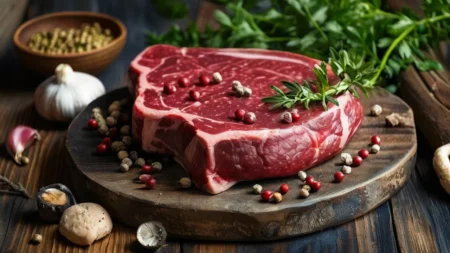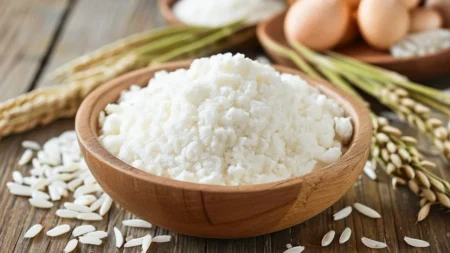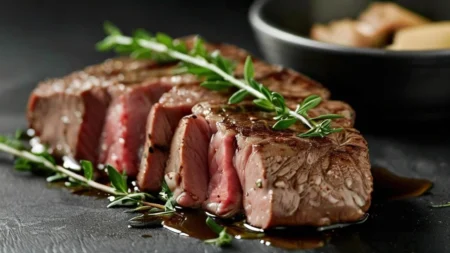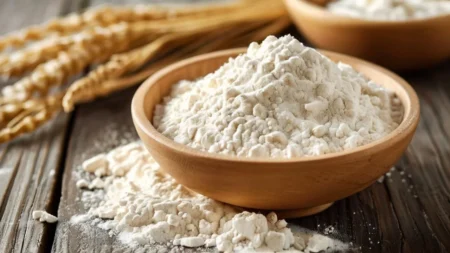Mangos: A Tropical Fruit with a Wealth of Nutritional Benefits
Key Takeaways:
- Mangos are rich in vitamins, particularly vitamin C and A, as well as fiber and antioxidants.
- They support immune function, skin health, and aid in digestion.
- Mangos are versatile and can be enjoyed fresh, in smoothies, salads, and savory dishes.
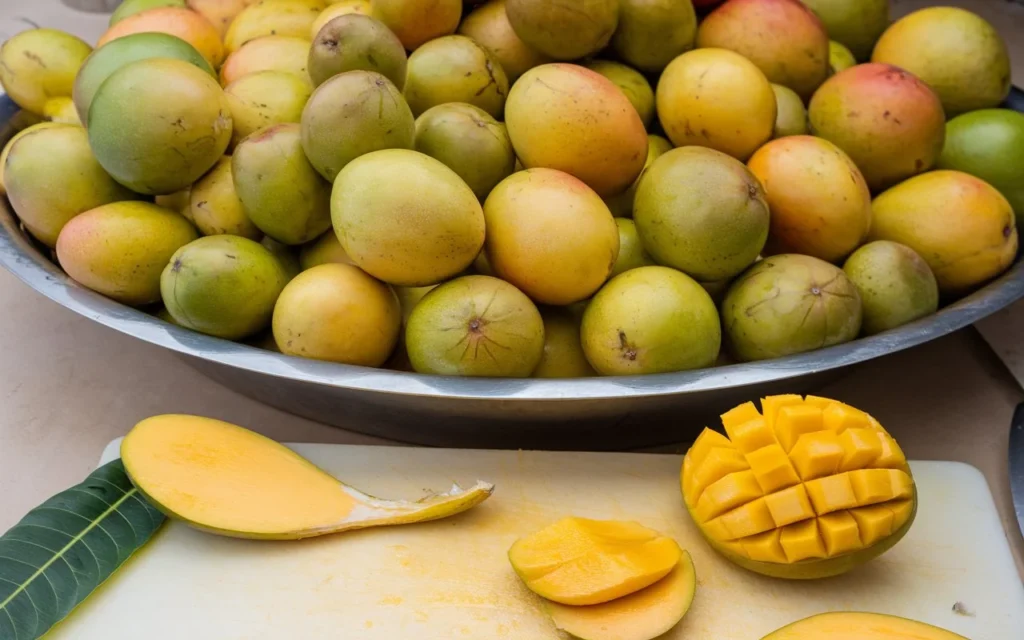
Nutritional Profile of Mangos
Mangos are not only sweet and flavorful but also packed with essential nutrients. Here is the nutritional breakdown for one cup (165 grams) of sliced mango:
| Nutrient | Amount |
|---|---|
| Calories | 99 kcal |
| Carbohydrates | 25 grams |
| Protein | 1.4 grams |
| Dietary Fiber | 2.6 grams |
| Fat | 0.6 grams |
| Vitamin C | 60.1 mg (67% DV) |
| Vitamin A | 89 mcg (10% DV) |
| Potassium | 277 mg (6% DV) |
| Folate | 71 mcg (18% DV) |
Rich in Vitamin C
One of the standout nutrients in mangos is vitamin C, which plays a crucial role in boosting the immune system, enhancing skin health, and supporting iron absorption in the body.
Health Benefits of Mangos
1. Supports Immune Function
Mangos are loaded with vitamin C and antioxidants, which help strengthen the immune system and fight off infections. A single cup of mango provides about 67% of your daily vitamin C needs.
2. Promotes Healthy Skin
The high levels of vitamin A and beta-carotene in mangos contribute to glowing skin. These nutrients aid in cell regeneration, skin elasticity, and protect against sun damage.
3. Aids in Digestion
Mangos contain both dietary fiber and digestive enzymes like amylase, which help break down food and improve digestion. This makes them a great option for those who suffer from digestive issues like constipation or indigestion.
Types of Mangos
There are many varieties of mangos, each with unique flavors and textures:
| Type | Description | Common Uses |
|---|---|---|
| Ataulfo | Creamy texture, very sweet | Smoothies, desserts, fresh eating |
| Tommy Atkins | Slightly tart, fibrous | Salads, salsas, cooking |
| Haden | Sweet and fragrant, firm texture | Fresh eating, juicing |
| Kent | Sweet and juicy, low fiber | Juices, smoothies, fresh eating |
How to Enjoy Mangos
1. Fresh Mango Slices
Mangos are best enjoyed fresh. Simply peel, slice, and enjoy as a snack or addition to fruit salads.
2. Mango Smoothie
Blend mango with yogurt, spinach, and a splash of orange juice for a delicious and nutrient-rich smoothie.
Mango in Cooking
Mangos add sweetness to a variety of savory dishes, balancing out spices and creating a unique flavor combination. Here are two ways to cook with mangos:
1. Mango Salsa
Dice mango, red onion, and cilantro, then mix with lime juice and jalapeños for a fresh, zesty salsa perfect for grilled fish or chicken.
2. Mango Curry
Add mango puree to a spicy coconut curry for a touch of sweetness that complements the heat and richness of the dish.
Mangos vs. Other Tropical Fruits
While mangos share similarities with other tropical fruits like papayas and pineapples, here’s how they compare nutritionally:
| Nutrient (Per 100g) | Mangos | Pineapples | Papayas |
|---|---|---|---|
| Calories | 60 kcal | 50 kcal | 43 kcal |
| Vitamin C | 36.4 mg | 47.8 mg | 60.9 mg |
| Carbohydrates | 15 grams | 13 grams | 11 grams |
| Fiber | 1.6 grams | 1.4 grams | 1.7 grams |
Mangos are slightly higher in calories than pineapples and papayas but offer a wealth of vitamin C and fiber.
Medicinal Uses of Mangos
In traditional medicine, mangos have been used for centuries to treat digestive issues, infections, and skin problems. The leaves, seeds, and bark of the mango tree are also used in some cultures for medicinal purposes.
1. Mango Leaves for Diabetes
Mango leaves have been used in traditional medicine to help manage blood sugar levels. They contain compounds that may improve insulin production.
2. Mango Seed Extract for Cholesterol
The extract from mango seeds has been studied for its potential to lower cholesterol and improve heart health by reducing LDL levels.
Conclusion
Mangos are not only a delicious tropical fruit but also a rich source of essential vitamins, antioxidants, and fiber. Whether eaten fresh, blended into smoothies, or added to savory dishes, they offer numerous health benefits, including supporting immune function, improving skin health, and aiding digestion.
FAQ
Q: Are mangos good for weight loss?
A: Yes, mangos are low in calories and contain fiber, which helps promote a feeling of fullness and supports weight management.
Q: Can mangos cause allergic reactions?
A: Some individuals may experience an allergic reaction to mangos, particularly if they are allergic to urushiol, a substance found in the skin of mangos.
Q: How can I tell if a mango is ripe?
A: A ripe mango will give slightly to gentle pressure and have a fruity aroma near the stem end. The skin may also turn from green to yellow, red, or orange, depending on the variety.





